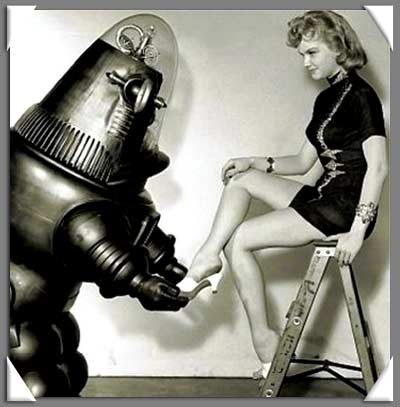It comes back to Biology
Regarding Wednesday’s panel I couldn’t help but be a little frustrated. You all know from my introduction that I’ve never taken a gender studies class or a technology-related class…outside of Mathematica.. so I have a harder time linking concepts together and finding something “deeper” in our discussions. I did have a question for male nurses and women engineers and those occupations who specialize and interact with customers…I wondered if there was any evidence found that shows whether men could only deal with certain kinds of clients and women, others? Maybe this customer separation was based subtly on the technological knowledge of such clients and whether they felt it would be easier for them to convey their opinions on men rather than women or even vice-versa?
My frustration arouse in class when Anne asked why do you think there are such deep gender divisions in many of the groups represented on the panel. I suppose because my mind is more math and science oriented (as Anne knows very well) I couldn’t help but go back to ancient greece and even early humanoid behavior. The ancient greeks hypothesized that we are all composed of various elements but what makes us female or male are those ratios of elements found in our bodies. Our personalities were governed by this theory as well. I wonder if the ancient greeks could add to our conversation and if they did, they would divise a “technological element” that is found in humans and whether they would decide if women or men had higher percentages. Also, I think gender divisions essentially always go back to biology. Women are physically not as fit as men to perform heavy labor but are good at socializing. I’m not trying to be anti-feminist here but just read any anatomy textbook and it’ll tell you the same thing. So, stemming from our early ancestors viewpoints and by their trial and error, they must have realized women are more fragile physically but more relatable sociologically and I think that’s what has governed our stereotypes today. But the aggravative part is that this answer seems so concrete and not deep enough. If this class has taught me anything, it has taught me that our perspectives can always be flipped since they don’t take into account every variable involved. I’ll keep thinking about Anne’s question to dig further but I’d appreciate any feedback from anyone.
Comments are closed.

Also, I think gender divisions essentially always go back to biology. Women are physically not as fit as men to perform heavy labor but are good at socializing.
Cat:
Whether or not these assertions are true is debatable, but let’s assume for just a moment that they are. Why are they true? Is it biology? Or could it be because, while little Johnny is outside playing football, little Jane is kept inside to play house with her dolls?
Another question: if women are truly more fragile physically, how come they were able to take over factory jobs during the war and do just as good a job as the men had before them?
Lastly: textbooks are often biased, too.
You know, Cat, I’ve taught lots of biology-and-literature courses (am teaching a class right now that is cross-listed in both departments: The Story of Evolution and the Evolution of Stories). What has come increasingly clear to me, over the course of the years, is that, while both biology and culture are hugely influential, neither is ever determinative. We each come with a genetic package, for instance, one that does limit our range of exploration (I could NEVER be All-American, no matter how much I practiced!). Biology matters; it is @ least directive. There is genetic imput. And individual variation. And cultural intervention. (Am thinking now about women math majors, in fact….; are you familiar with Larry Cahill’s April 2005 Scientific American article, His Brain, Her Brain? I’d be curious to hear your reactions to it….
To answer your question about whether workers were chosen to interact with certain people, one reason early telephone operators were women was because their “disposition” was more patient and submissive than men’s–so they were better at restraining themselves from insulting obnoxious callers.
Was this “disposition” biological or environmental? Both, but I think mostly cultural. Women during the time period were more expected (than nowadays) to be demure and submissive to men–also, they had to go to school to learn how to deal with callers, so they were being instructed in their gender. At the same time, I believe biology does have something to do with what we call women’s “disposition.” Did you see the exhibit at the Franklin Institute last year about Identity? Part of it talked about biological differences effecting the personalities of men and women–although I remembering thinking at the time it seemed a little exaggerated.